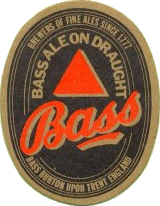| |
Gone for a Burton
by Willard Clarke, 12/04
| The recent announcement by Coors that it will end all cask beer production in Burton-on-Trent went almost unnoticed: it generated at most what journalists call "a NIB" -
a News In Brief. Yet the statement by Coors was one of historic importance. A long and proud period of British brewing heritage is being snuffed out. |
|
 |
Brewing goes on in Burton. Marston's is a might brewery and there are several micros in the town, most notably Burton Bridge, one of the oldest craft producers in Britain.
But the breweries that were once Bass and Ind Coope & Allsopp have now been effectively consigned to the rubbish bin. It speaks volumes for how little attention we pay to our brewing heritage that their passing gets no more than a few lines in the trade press.
Of course, the breweries will continue to operate. But when Coors says it will now concentrate on its core lager brands, Carling, Grolsch and Coors Fine Lite Beer, you can hear the distant rumble of Messrs Allsopp, Bass, Ind and Coope rotating in their graves.
The breweries they built and which turned Burton into the world's greatest brewing town have now lost their meaning. They were a powerhouse, part of the explosion of industry in the late 18th and 19th centuries, and they transformed the way in which beer was brewed.
Burton, with its fine spring waters, had been an important brewing centre from medieval times. It came to prominence during the industrial revolution when brewers in the town were able to marry Burton water with better quality malt to produce the first consistent pale ales.
Burton's success in the 19th century was based at first on the success of India Pale Ales, strong and heavily hopped beers fashioned to withstand long sea journeys to India and other parts of the British Empire where soldiers, civil servants and merchants clamoured for refreshing beer.
At Allsopp's brewery, according to a charming legend, the head brewer produced a sample of pale ale made in a teapot. Allsopp, which later merged with Ind Coope, found immediate success in India with the new style of beer. Other Burton brewers - including Bass and Worthington - joined Allsopp in supplying beer for the colonial market.
Bass was a phenomenon. William Bass started his commercial life as a part-time brewer who also ran a haulage company. He eventually sold the haulage side to Pickford's
in order to concentrate on brewing.
His sons developed the business by using the new railway system in Britain to send their Burton pale ales to all parts of the country. When St Pancras Station was built in London, the cellars were specially designed with
arches high enough and wide enough to store giant hogsheads of Bass beer that rolled off the trains from Burton.
With a small army of brewers and coopers, and an insatiable demand for beer from both home and abroad, Bass by the end of the 19th century was the biggest brewery in the world.
|
|
 |
Already some readers will be writing me off as a hopeless nostalgist, locked in the past, but the facts refute the charge. Until the 1980s, Bass and the neighbouring Ind Coope plant continued to produce vast amounts of cask beer. Draught Bass was by far the biggest selling cask beer in the country, while Ind Coope produced one of the most succulent beers known to personkind in the shape of Draught Burton Ale.
Business attitudes, not consumer demand, changed. Lager, nitro-keg and alco-pop were seen as far more profitable than fiddly and perishable cask beers. The writing was on the wall when the former boss of Bass,
Sir Ian Prosser, announced in the 1990s that Caffreys and alcopop were the future of brewing. Cask beer was sidelined. First Ind Coope and then Bass gave up brewing and the merged sites were bought by the giant American company Coors, with no knowledge, experience or love for cask beer.
A Coors spokesman told me that the company's cask beers will be all be brewed for it by smaller regional breweries "because they're better at it than we are". What an admission and what a shocking epitaph for the end of a
noble brewing tradition in Burton-on-Trent.
|
|